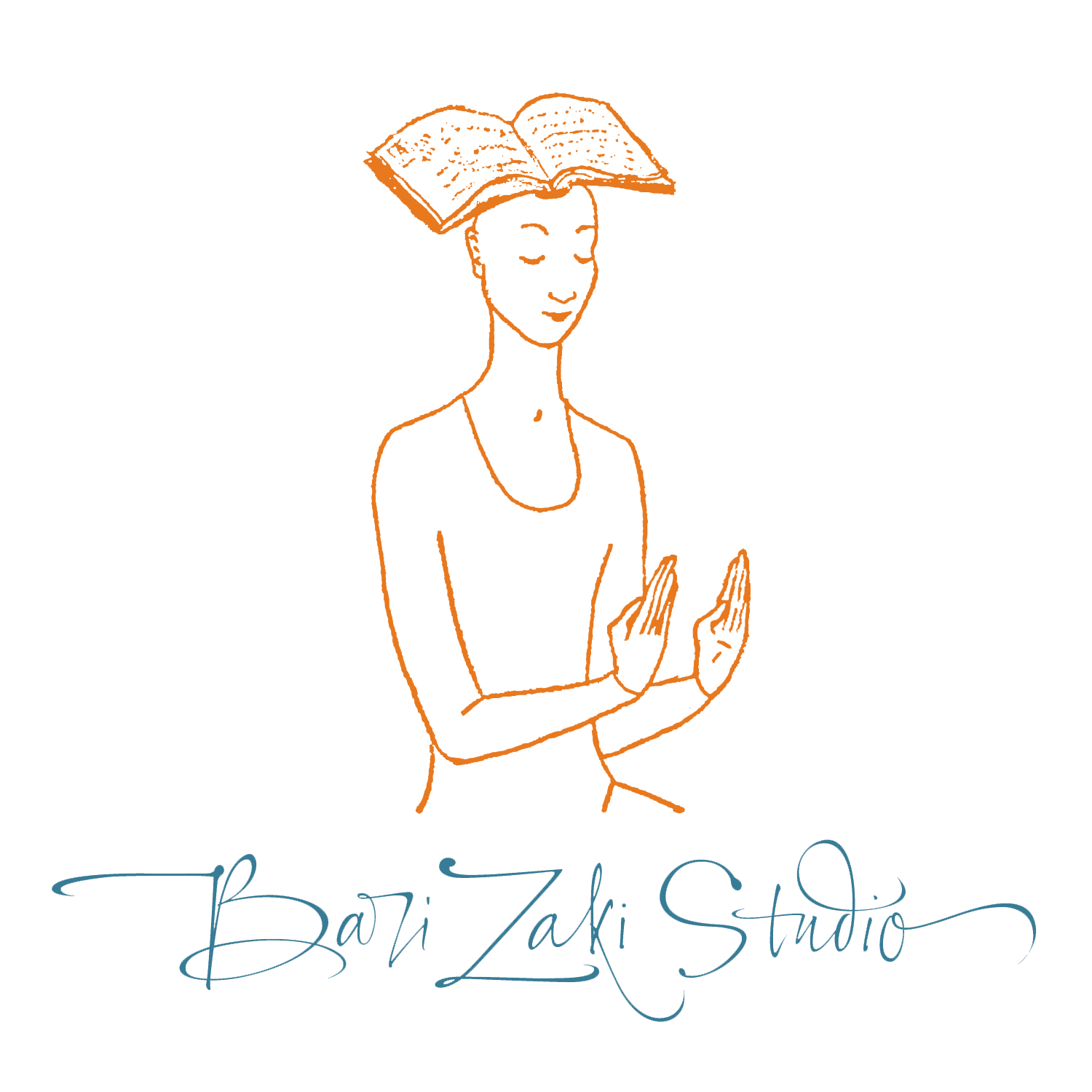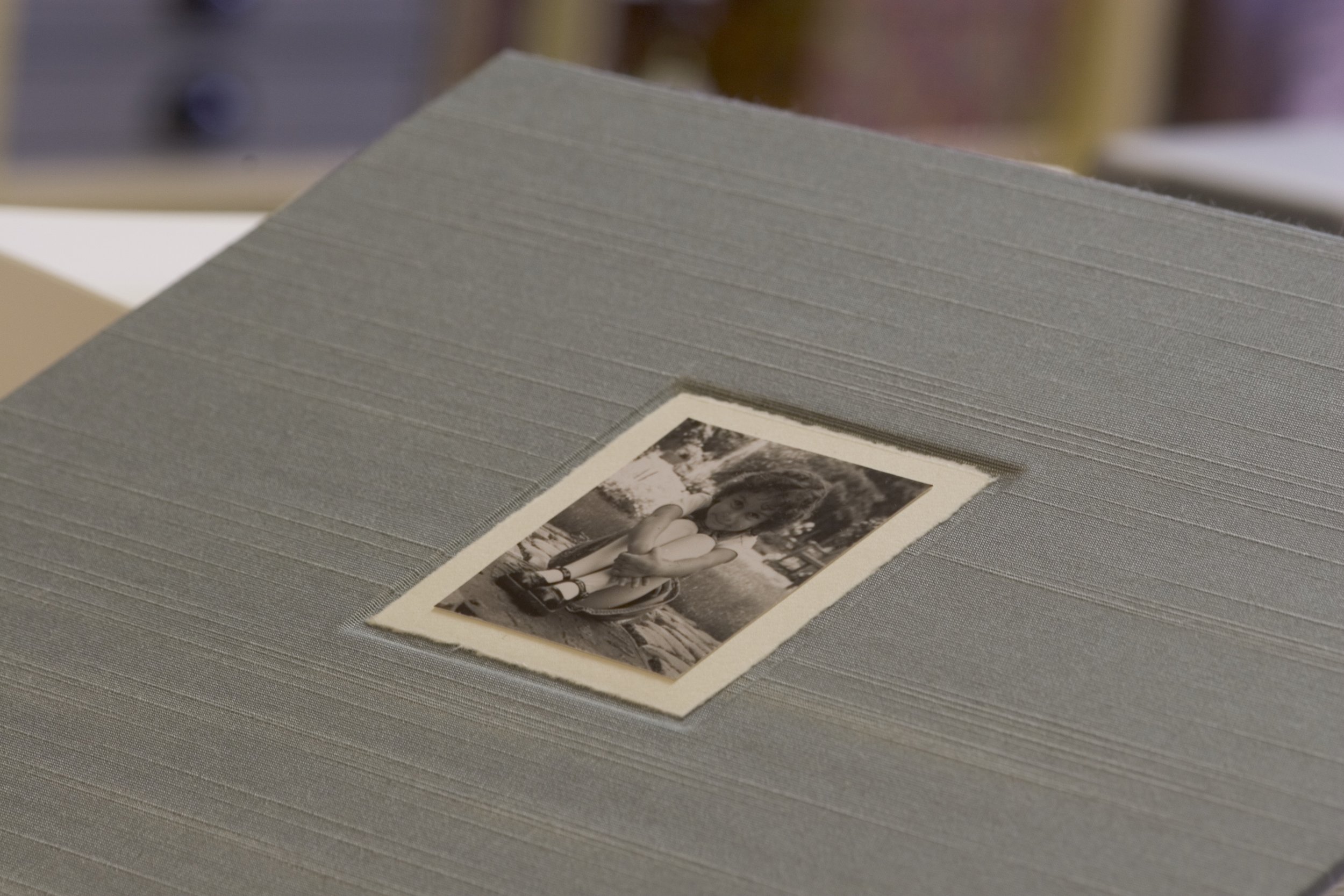Weddings
To have and to hold for decades to come.
A custom album is the perfect permanent home for cherished photos. Fabrics and/or papers can evoke the bride’s gown, the reception’s color scheme, or the natural setting. Archival pages ensure that photos and other memorabilia are protected from yellowing.
Family Photos
If a picture is worth a thousand words, your most prized pictures are worthy of a custom album.
Recessed cover panel displays a small photo (left). Endsheets add texture and pattern. They can provide an element of surprise, echoing a color scheme or location and setting the stage for the photos that follow (right).
Presentation Box
A home of its own.
A drop-spine box is a superb way to display and protect a custom album. Drop-spine allows the box to open completely flat; the box protects the book from light and dust. Can be displayed either standing or flat.
Materials & Sizes
Construction: The albums I make typically have a fabric spine and back cover, with matching or contrasting paper (or cloth) on the front cover. I recommend archival pages with spacer tabs on the binding edge, so that the album closes flat when full. Endsheets offer an element of decorative surprise.
Sizes: Most popular page sizes are 10" x 12" and 12" x 14". We have made albums as small as 5" x 5" and as large as 14" x 16".
Capacity: Albums with cased-in binding may hold up to 35 pages. Screw-post albums, as well as Japanese-style bindings, accommodate more pages.
Shown here: Japanese-style binding with satin ribbon. Smaller albums may use four holes; larger albums, five or six.





